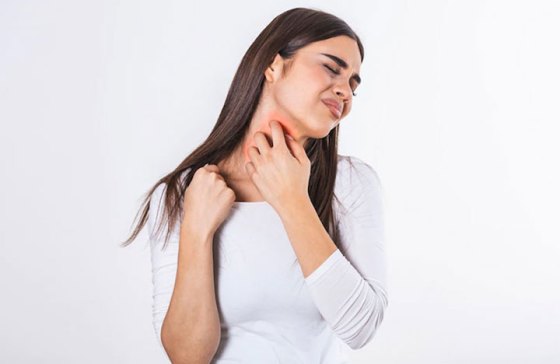
But first, what is Eczema ?
Eczema or ‘atopic dermatitis’ is a very common chronic inflammatory skin disease, that occurs in early childhood, sometimes as early as around 2-6 months from birth. You can tell when you’ve got it by identifying red, itchy, inflamed, and sometimes blistering patches of skin.
Mostly found in infants, children or adults, eczema isn’t contagious, but can significantly impact your quality of life.

There’s also clinical evidence to prove that it could also come from a family history of eczema, as it passes from parents to kids through their genes.
Living with eczema can be tough. This chronic skin condition affects millions of people worldwide, including those in the United Arab Emirates (UAE). Eczema affects people of all ages, but it is most diagnosed in childhood.
In the UAE, around 10-20% of children and 1-3% of adults are estimated to have Eczema 1.
Caution: Extreme heat causes eczema:
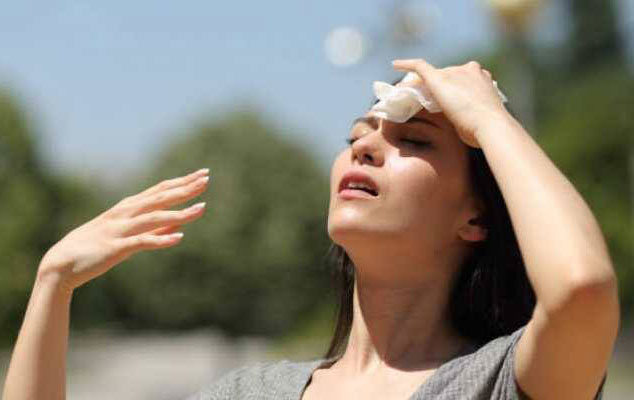
As the UAE approaches the summer season where temperatures can rise to record levels, those who suffer from eczema face unique challenges in managing their condition. The extreme heat and high humidity levels can lead to increased sweating, skin dehydration, and potential irritants such as sand and dust. Consequently, the summer months can trigger flare-ups and worsen eczema symptoms.
According to our best dermatologist in Dubai, the most common cases in the UAE include children who develop eczema due to allergens like dust mites or harsh laundry detergents, but it’s adults whose symptoms worsen during the summer, due to the piercing heat and increased levels of perspiration.
While these are observations for skin issues in summer, we also have a few helpful tips for you in taking care of your skin during winter, which you can read all about in our blog on the secrets of winter skincare.
What are the symptoms of eczema?
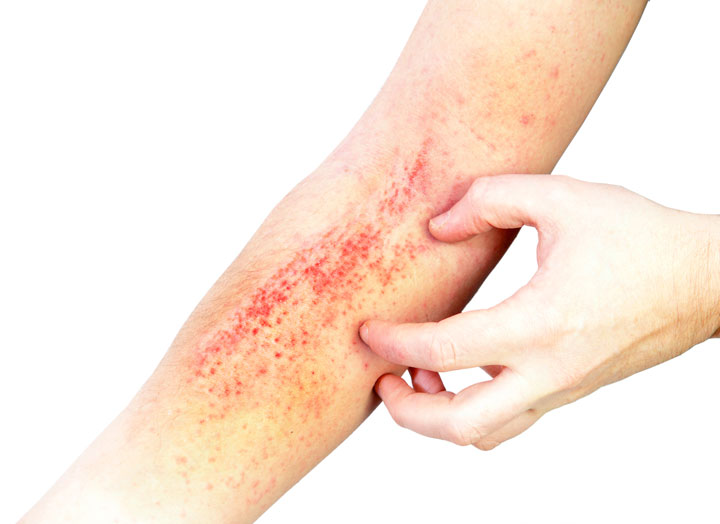
Eczema can easily be identified by itchy outbreaks on particularly dry skin. These inflammatory outbreaks which are in the form of poorly defined red patches, cause intense itching and are sometimes accompanied by small vesicles which then turn into scabs.
In infants, they first appear on the rounded parts of the face (cheeks, forehead & chin) but not usually the diaper area. In older children, you can easily notice lesions that are mostly located on the neck, elbow creases, wrists and behind the knees.
The progression occurs in flares (a heightened increase of symptoms), and in-between phases of remission (a decrease in or disappearance of symptoms). It varies depending on the child, but most atopic dermatitis starts disappearing slowly during childhood.
- Itchy, inflamed, and red patches of skin.
- Dry, sensitive, and rough skin.
- Oozing or crusting of affected areas.
- Swollen or thickened skin.
- Recurrent skin infections due to scratching.
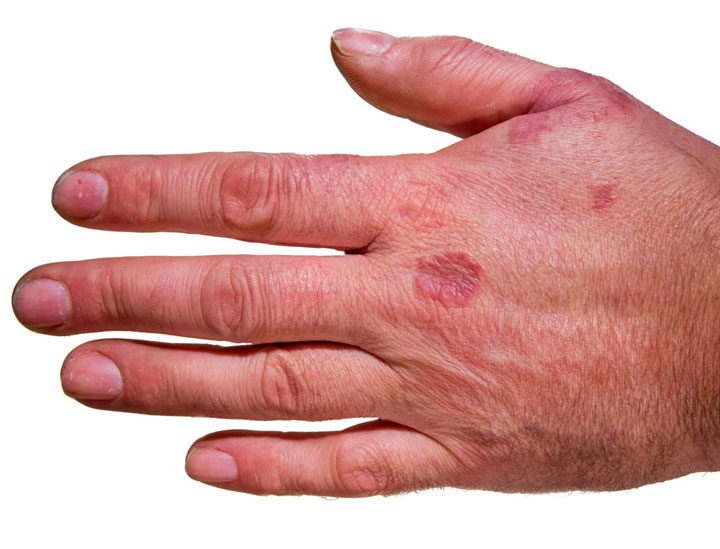
What are the causes of eczema?
Although the exact cause of eczema is unknown, what is generally observed is that it’s a combination of genetic and environmental factors. Chances are if you have a family history of eczema, asthma, or hay fever, you are more likely to develop this condition. Environmental triggers such as allergens, irritants, stress, and climate can also aggravate eczema symptoms.
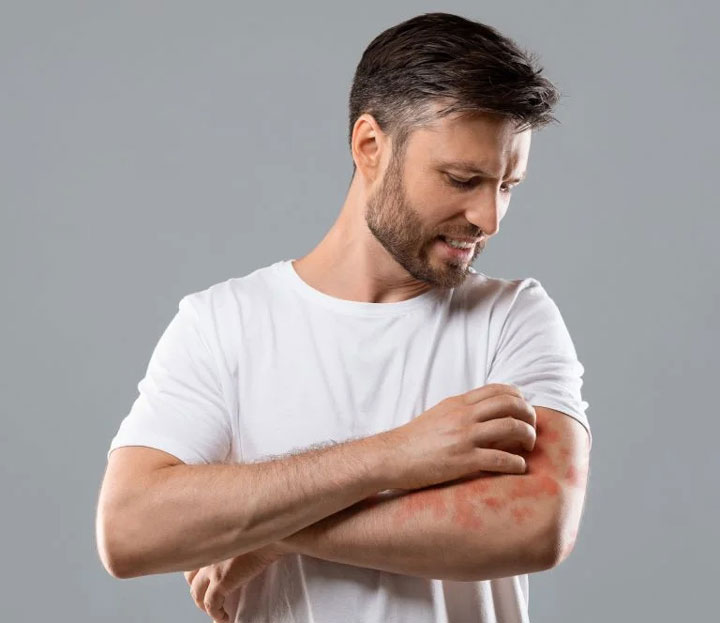
How do you treat eczema?

When you experience a flare-up of eczema, our skincare doctors at HealthHub Clinics would recommend using certain prescription-based creams depending on the extent and severity of the condition.
When it comes to your child experiencing it, make sure to consult with our dermatologists at HealthHub Clinics since cases of eczema vary from person to person, so make sure to check the right ointment or cream prescribed by our doctor.
This is because the more the eczema outbreak progresses, the more deeply your child’s skin risks being damaged.
How you can prevent eczema:

Room temperature
Eliminate “dust nests” that catch on carpets and drapes with the help of a vacuum cleaner.

Type of Clothing
Choose soft clothes that “breathe,” while against your skin, such as white cottons. Avoid wool or polyester to prevent sweating. Make sure you do not cover up too much: when sweating, your skin loses water and becomes drier.

Ensure regular hydration
Kids should drink at least up to 10 glasses of water a day, which adds moisture to the skin. Fruits such as watermelons or pomegranates carry water and fiber leaving skin fresh and hydrated.
Monitoring your skin appearance
- In case of oozing, crusts, or pus, which is usually the outcome of superinfection by microbes (impetigo) it needs to be treated immediately.
- In the event of an unusual location, often an associated contact eczema (diaper elastics, snap buttons, metal buckles, etc.), make sure to speak with our top skin doctor in Dubai.
- Nails: Remember to keep your child’s fingernails short to prevent skin damage from scratching and bleeding.
- Cold sores: If you happen to have them, make sure you do not kiss your child, as it is infectious and could pass on.
While there is no 100% cure for eczema, you could consider these treatment options that can help to prevent and control these symptoms:
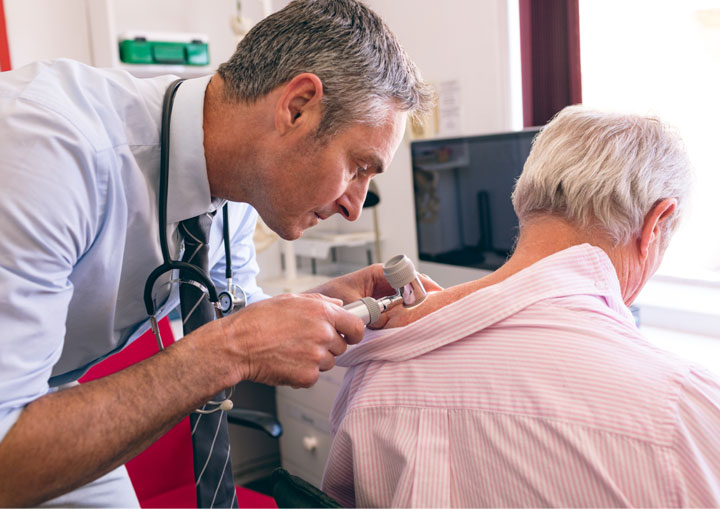
Moisturizing: Regularly apply moisturizers as it helps to keep the skin hydrated and reduces dryness and itching.
Topical Corticosteroids / Immunomodulators: Prescription-based creams or ointments containing corticosteroids or other immunomodulators can help reduce inflammation and relieve any kind of itching. It’s always better to consult with your dermatologist for the correct creams for your condition.
Antihistamines: These medications can be used to reduce itching and promote better sleep.
Avoiding Triggers: Identify and avoid triggers, such as certain foods, allergens, or irritants, which can help to prevent flare-ups.
Phototherapy: In some cases, exposure to controlled amounts of ultraviolet (UV) light under medical supervision can improve eczema symptoms.
Biologics: Biologics work in a different way to the conventional treatments that you may be used to using and are designed to target a specific area of the immune system and block or inhibit the inflammatory effects that cause symptoms of atopic eczema.

Living with eczema however requires ongoing management and care. By understanding the causes, symptoms, and treatment options, you can effectively cope with this chronic condition.
Then again, given UAE’s harsh climate, you need to pay extra attention to skincare. Proper skincare routines and avoiding triggers can help individuals with eczema maintain healthier skin, while also seeking medical advice when needed
To know more, talk to our team of expert dermatologists at HealthHub Clinics or book an appointment on 800 2344.








